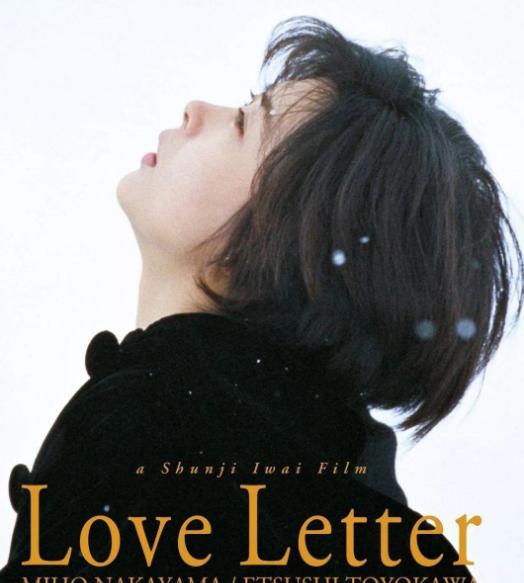Qilu Evening News Qilu One Point reporter Liu Yuhan
Shunji Iwai's film Love Letter, which premiered in 1995, is still considered a classic of love movies today. It's just that nowadays, people use more "pure love films" to define this type of film. Standing today and looking back at "Love Letters", you will find that Shunji Iwai has already given a set of "pure love" paradigms - pure and flawless, mournful but not hurtful, wanting to talk and stopping, and unfinished, which is the classic code of "Love Letters".

"Love Letters", a film from 26 years ago, has an important place in the hearts of domestic film fans. The film received a score of more than 800,000 netizens on Douban and ranked 71st in the Douban movie rating with 8.9 points. Therefore, "Love Letter" was re-screened in China this time, and many viewers were willing to make up movie tickets for Shunji Iwai for their feelings. 7 days after the re-screening, "Love Letters" won 53 million at the box office, which shows that the classic old film still has a lot of appeal.
As a Japanese film, "Love Letters" has a unique context in Japanese society, but in the same East Asian cultural circle, domestic audiences can still achieve great empathy for this film. Through the correspondence of two women, the film draws out two love stories, one is the feeling that cannot be put down for the deceased lover, and the other is the youthful love that has been re-discovered by the memory. Although "Love Letter" is related to life and death, it does not reveal the ups and downs of great sorrow and joy, but in the plain narrative, it tells the audience a "love" word.
Because of the mistake of the same name, a letter sent by Hiroko Watanabe to her deceased fiancé was sent to the hands of Fujii Shu, a girl with the same name and surname. Hiroko naively romantically thought that this was her fiancé's reply from heaven, and she would write in the letter that she saw cherry blossoms waiting to bloom on the way home, "I think this is what he wrote, very romantic, just go on." With the clarification of identity, the misunderstanding was lifted, and the youth story of the girl Fujii tree and the boy Fujii tree, who had been a classmate in the junior high school, was spread out little by little in the memories of the correspondence.
There is no formal confession in the whole film, but the voice hidden in the heart is hidden in every little thing. The trick of using a bicycle to generate electricity, the name written on the library card, the flour bag on the head, the door visit before the transfer, the self-portrait of the girl on the back of the library card found by the students...
The drama behind the film has always been the ideal state that Shunji Iwai pursues, and he once said, "I want the audience to have a feeling of 'you are watching this movie, but there is another kind of content behind it'." Viewers say that "Love Letters" interprets the "extreme of crush", and this unique implicitness of oriental emotional aesthetics is accurately captured by Shunji Iwai.
In the midst of silence, "Love Letters" also lurks with great power. From the first letter written "How are you?" I'm fine", and finally Hiroko shouted at her fiancé who was buried in the distant mountains, "How are you?" I'm fine", the emotions that have been converging here push the whole film to the climax of the explosion, so that the surging feelings of the undercurrent find an outlet for venting.
"Love Letter" begins with a funeral, but it takes the entire film to complete a memorial - a tribute to the lost lover, the lost youth, the lost feelings. There are no fancy kisses and no full love words for the performance of feelings in the film, but it makes people fill their hearts with a strong emotion after watching it, and they can't calm down for a long time.
In addition to the delicate emotions, the texture of the picture also adds a lot to the "Love Letter". At the beginning of the film, Hiroko Watanabe lies in the snow with her eyes closed, and suddenly she opens her eyes and looks up at the sky looking for something, which becomes the picture in the movie poster. There is also Hiroko wearing an orange sweater in the snow repeatedly shouting "How are you?" I'm fine"; the boy Fujii tree in a white shirt reads in the library window, looming under the fluttering white curtains, while the breeze blows the bangs of the girl Fujii tree... These pictures have become a classic scene in the history of film, which makes people lament Shunji Iwai's ability to shape beauty and atmosphere.
Shunji Iwai is known as the "Image Writer", and some domestic fans call him "Japan's Wong Kar-wai". Overexposure, backlighting, shaking, these irregular film shooting methods, to Iwai Shunji's film to bring a special texture, resulting in a dreamy and fresh effect. His unique style of film pictures made "Love Letters" a classic and was imitated by later works, so that later youth romance films always seemed to carry the shadow of "Love Letters".
Find reporters, reports, ask for help, major application markets download "Qilu OnePoint" APP or search weChat Mini Program "OnePoint Intelligence Station", more than 600 mainstream media reporters in the province are waiting for you to report online!